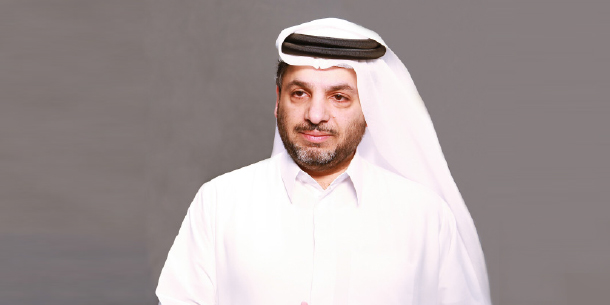Having ramped up quickly since its inception, the UAE-based cybersecurity player DarkMatter is gearing up to lead the regional security market, armed with security pros and a diverse range of services. Faisal Al Bannai, CEO of DarkMatter, talks about the company’s customer-centric action plan.
Can you tell us about Dark Matter’s business model? Are you a specialised security systems integrator or a solutions provider or a VAR?
The way we look at this is, in order to ensure you are secure, you need to look at security from an end-to-end perspective; it is not just matter of buying some good solutions or hiring someone to do your security monitoring operations. Because any one of these elements will not work properly If the other bits are not done. Which is why we are focused on end-to-end cybersecurity, with global subject matter experts across each of these streams. Whether its reviewing your security architecture, systems integration and implementation, or selecting the right solutions or vetting these solutions and testing them, we cover the entire value chain of cybersecurity.
The reality of the local security market is that we have two types of players in the market – first, you have the multi-nationals, most of which are based out of the US or Europe. Many of them do have offices here, but these are mostly sales and marketing offices, while technical support is offered from elsewhere. They may offer you some sort of level two or three technical support from their local offices but the real heavy hitters are in the home base. Then comes the resellers and system integrators. They don’t have an end to end approach and security is just one element of what they do; they are not very security conscious.
Now, that’s what our differentiator is. Some of our services are developed in house by subject matter experts. For example, the head of our GRC practice was the global head of information risk assurance at Salesforce.com and one of the editors of the ISO standards. The person heading our security management centre, wherein we advice our clients to build their own SOCs and use our’s as a service, which will be built by the end of this year, was involved in the US Department of Justice’s security operations centre. The former global head of Samsung’s security engineering team is the head of our secure communications practice. I don’t think any other security company in the Middle East has such a concentration of high-calibre individuals.
Having said that, we do realise we can’t do everything by ourselves, so we partner with others, and integrate their products and services. But, we review everything, vet these solutions before critical entities or government can deploy them.
Do you do your own R&D and plan to develop products?
We have R&D teams based here locally, and in Canada and China. We are developing products in the space of secure communications, cyber defence, signal intelligence, Big Data and analytics, among others. All of these teams are run by highly-accomplished individuals, who have come here looking for an eco-system conducive to innovation. And that is in line with our country’s vision.
The UAE has gone through different phases. In the 60s and 70s, it was a phase of catering to basic needs such as hospitals and schools, and was followed by building basic infrastructure as such as roads. Later on, the government’s focus was on making sure all the government entities were running on a business excellence model to ensure efficiency and transparency. The current phase is all about innovation and developing intellectual property. That’s when we felt, if we are creating a new cybersecurity player, UAE might be the right market to base that in. So we are going to use the UAE as a springboard to cover this region and eventually become a global player. The aim is not become a local or regional player, but to become a key global player that can attract talent to our country.
When are you planning to go global?
Well, as they say, one step at a time. You need to to make sure your home turf is covered; we need to make sure that the UAE and the region is covered first over the next two years. Some of the products that we will introduce over the next couple of years will appeal to the global market as well, but right now our focus is the regional market. You can’t do everything for everyone from day one. Right now, the aim is to make global products and services, and to become a dominant regional player. Once we accomplish that, we will go global. It is going to be our natural progression.
You have a strategic partnership with the UAE Government. Is that your primary target market?
There are four types of customers – individuals, SMEs, large enterprises and governments. All of them can be our potential targets, but our current customers are those who are highly security conscious because cybercriminals are targeting them in a big way. So our customers now are either government or critical entities which includes banks, oil and gas, healthcare and telecom operators.





